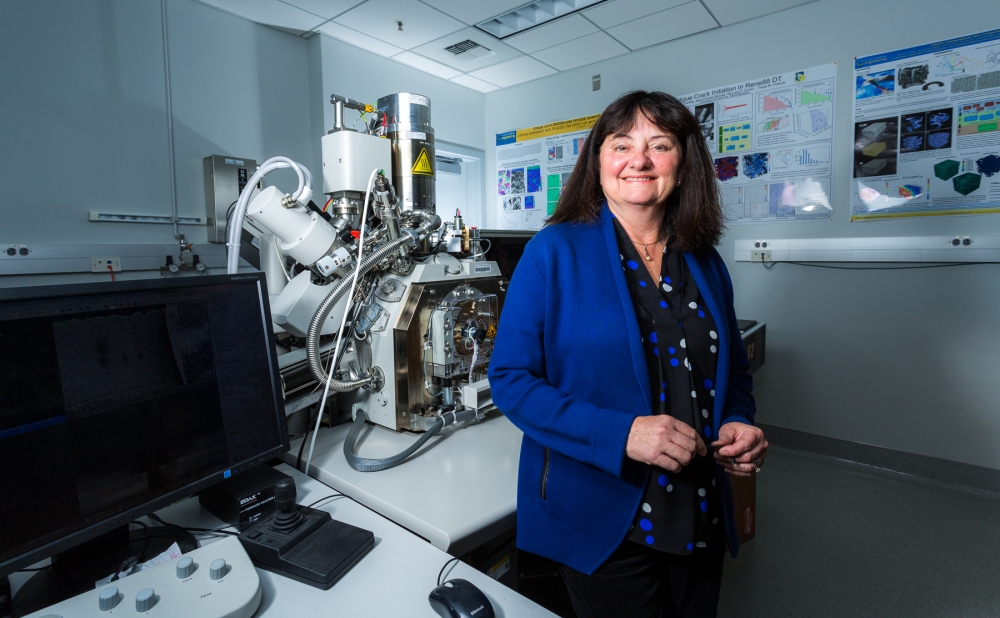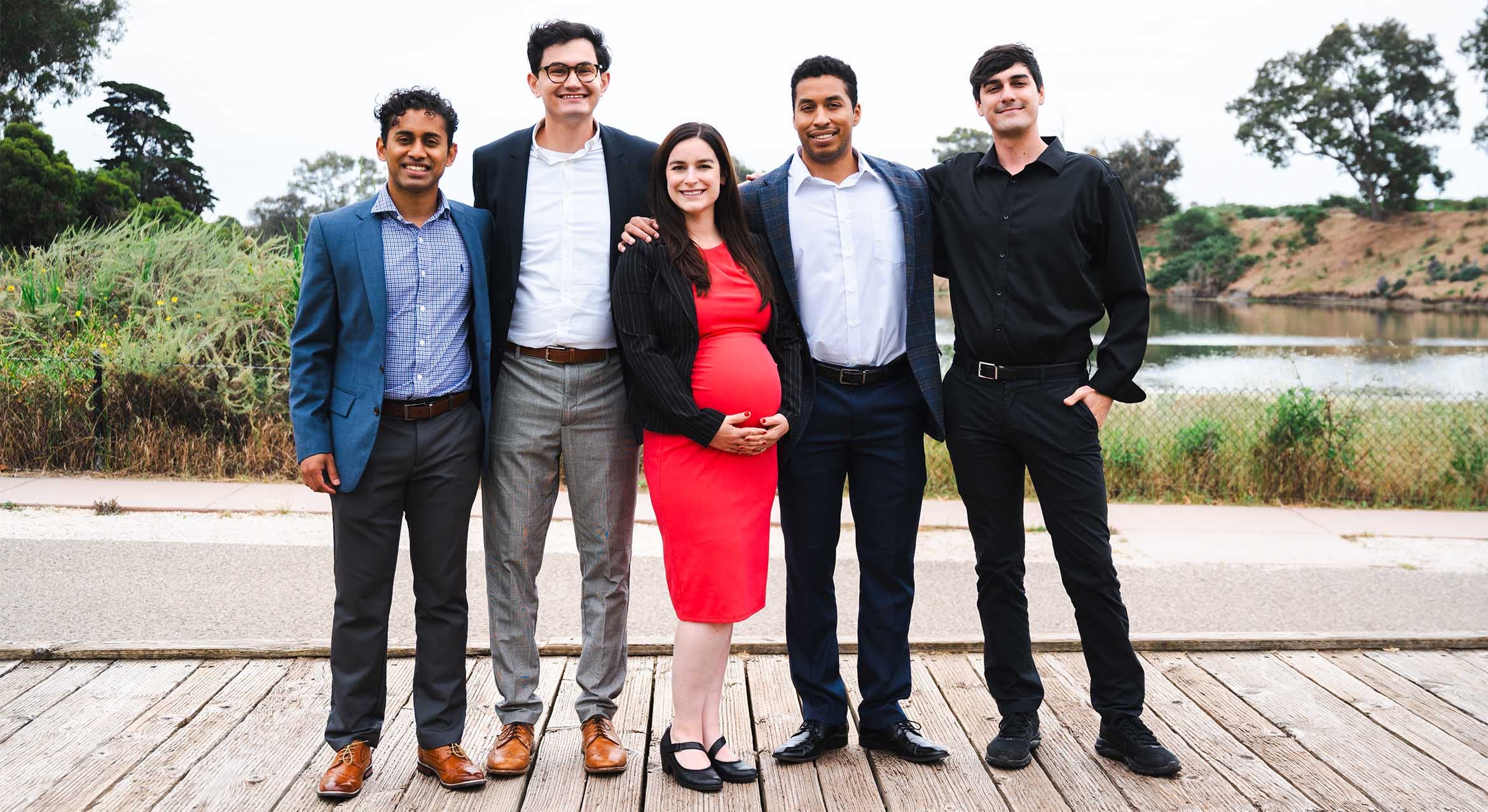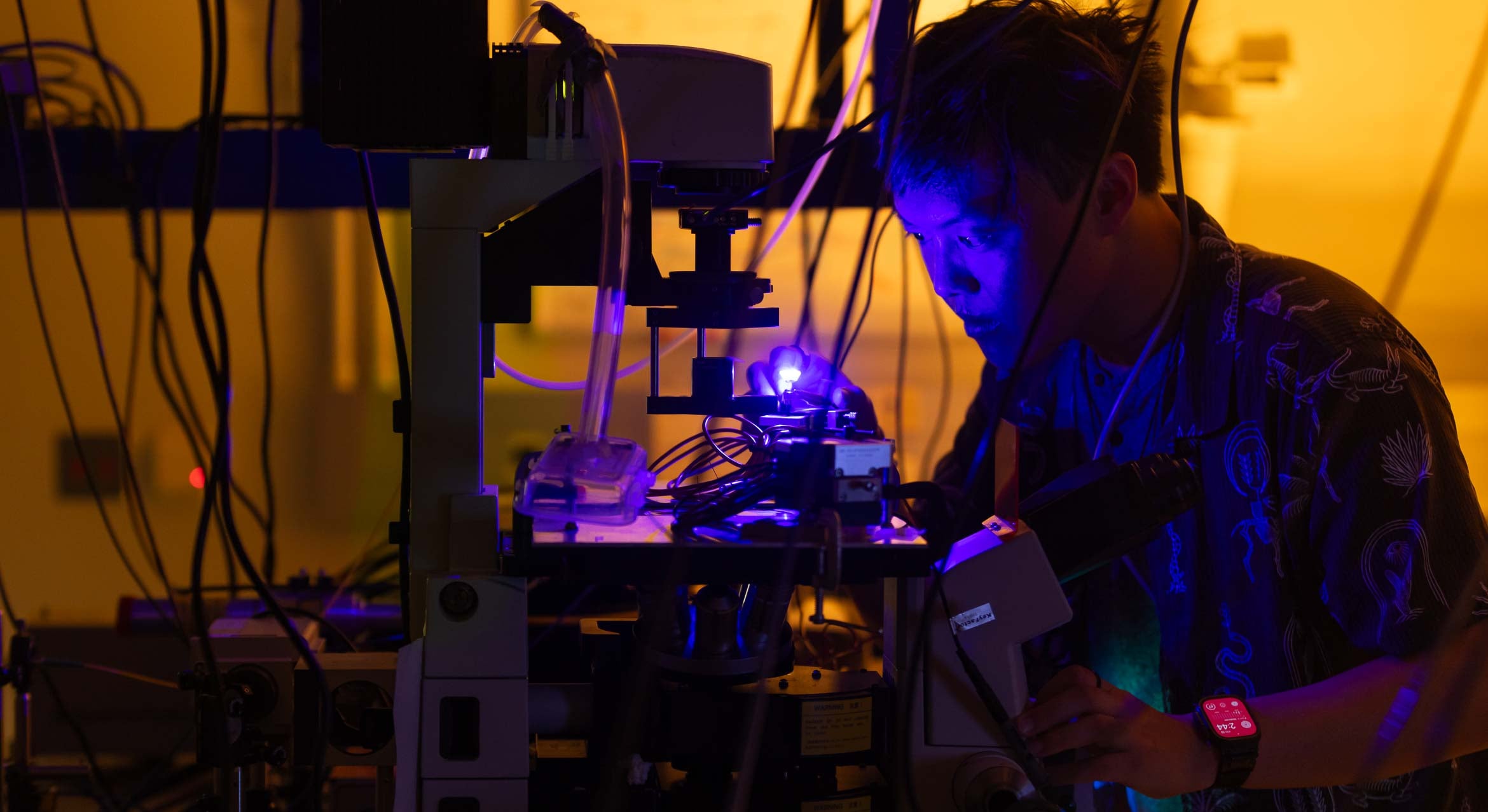
A Trifecta of Honors
professional honors
Talk about a hat trick.
UC Santa Barbara’s Alcoa Professor of Materials, Tresa M. Pollock, has been honored with three separate awards from The Minerals, Metals & Materials Society (TMS) — two for outstanding long-term contributions to the field of materials science and one for service to the professional society.
“I am deeply honored that my materials colleagues have nominated me for these awards,” Pollock said. “They are the culmination of many productive and exciting collaborative research programs, and they reflect on the outstanding graduate students that I have worked with through the years.”
First, the 2018 Morris Cohen Award recognizes an individual who has made outstanding contributions to the science and/or technology of materials properties. It was established to honor Morris Cohen, an MIT professor of metallurgy who was highly respected as a researcher, educator and prominent leader in the field. Pollock’s citation notes her “seminal contributions to the development of integrated computational materials engineering and its application to understanding the properties of critical materials through creative synthesis, characterization and measurement.”
Pollock also was selected as an honorary member of the American Institute of Mining, Metallurgica, and Petroleum Engineers (AIME). She is one of only two women so named, and the first woman so nominated by TMS. For their technical contributions and their broad impact on their disciplines, as well as for playing exemplary roles in their communities, AIME honorary members are seen as standing at the pinnacle of the profession. Pollock was cited for “extraordinary contributions to the metallurgical field as an inspiring educator, a creative technologist, an exceptional colleague and a visionary leader of the TMS community.”
The TMS 2018 Alexander Scott Distinguished Service Award, Pollock’s third recent honor, recognizes outstanding contributions to TMS as exhibited by exceptional dedication of time, effort, thought and action toward furthering the society’s mission. She is cited for “educating, engaging and inspiring countless TMS leaders and for her own unwavering dedication and service to TMS and the broader materials community.”
“We at UCSB’s College of Engineering are well aware of Tresa Pollock’s innovative and important research in both the fundamental science and the applied engineering of materials,” said Rod Alferness, dean of engineering. “I’m both thrilled and proud to see her receive these important awards from the professional society made up of colleagues who know her work best. We are privileged indeed to have Tresa as a professional colleague, as are the graduate students who benefit from her mentorship.”
Added UCSB materials professor Carlos Levi, who has collaborated with Pollock for some 20 years: “These awards are given to top people who are at the pinnacle of their field. Tresa is arguably the metallurgist with the highest visibility in the world.”
Levi first met Pollock at Carnegie Mellon University, where, he recalled, “she already had a reputation as an excellent scientist. She impressed me as someone who was enthusiastic about her field and very energetic. She had good ideas and was obviously on the rise. Everybody thought highly of her.”
And with good reason, he added. “She’s the real thing,” he said. “A lot of people are good at selling themselves, but there may not be a lot of substance underneath. Tresa has the substance, plus the ability to promote her ideas and bring people together to work on large-impact problems. Metallurgy is a profession with a long tradition of contributions to societal progress, and Tresa has helped to keep it alive and well and relevant.”
“We are all excited for this recognition of Tresa’s work on structural materials, such as metallic crystalline alloys for applications in high-performance turbines,” said Michael Chabinyc, chair of UCSB’s materials department. “Tresa’s leadership on the development of the national Materials Genome Initiative, which aims to integrate computation with materials engineering, has had a significant impact on structural materials.”



